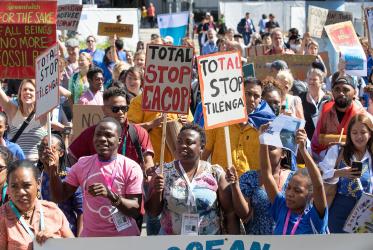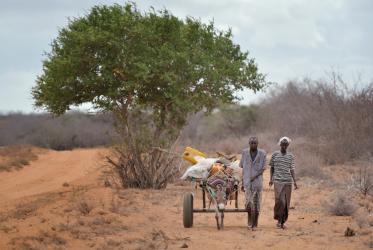Displaying 1 - 20 of 64
Churches respond to Malawi cyclone disaster
29 March 2023
Zur Verwandlung aufgerufen Ökumenische Diakonie
15 February 2023
HIV and AIDS Civil Society Networks and the Faith Sector
Lessons Learnt from Strategic Engagement in India, Dominican Republic, Indonesia, and Jamaica
31 January 2023
Ukraine: Auf humanitäre Bedürfnisse reagieren
27 September 2022
Assembly workshop looked toward ending AIDS epidemic by 2030
19 September 2022
Ukraine: Responding to humanitarian need
08 September 2022
Seek Peace and Pursue It: PJP Series 4
Reflections on the Pilgrimage of Justice and Peace in Europe
22 August 2022














